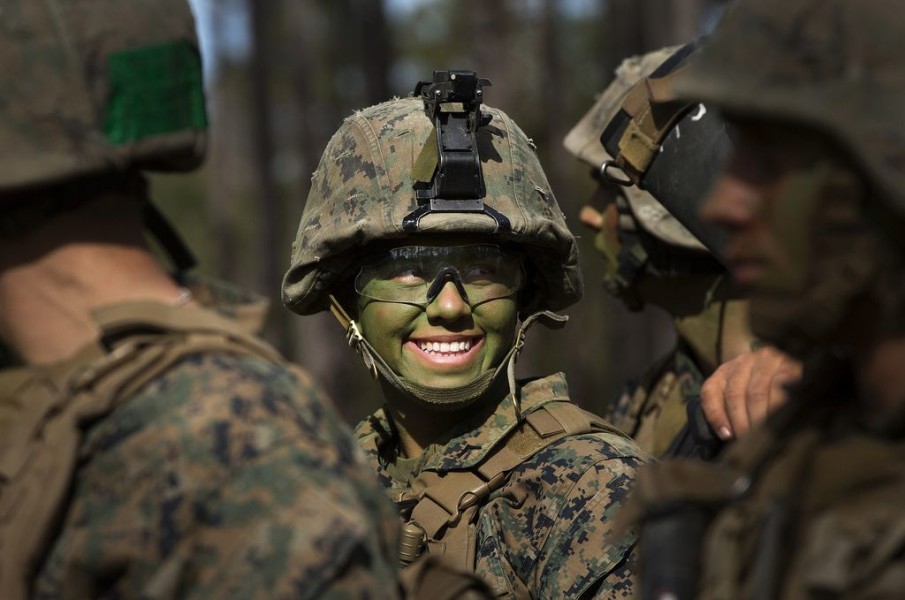Maj. Gen. Joseph Osterman, commanding general of MARSOC, told Military.com the command has already received several requests from female Marines to enter the assessment and selection pipeline to become a critical skills operator. While Osterman could not specify how many women had applied, he said the first female applicant surfaced only days after the Jan. 4 deadline Defense Secretary Ash Carter set for new jobs to open.
“The very first week of January … we had one female applicant on the West Coast,” Osterman said. “Unfortunately, there was something in the prerequisite stuff she didn’t have, a [general technical] score or something. It was, ‘get re-tested and come on back,’ that kind of thing.”
Osterman said MARSOC is actively soliciting and recruiting qualified female Marines to join the command’s ranks. The command does not have, as Osterman put it, a “street to fleet” recruiting program; rather, it recruits from within the ranks of the Marine Corps.
To qualify for MARSOC critical skills operator assessment and selection, a Marine must be a seasoned corporal or a sergeant, or a first lieutenant or captain. The Marine must also have a minimum GT score of 105 and a minimum physical fitness test score of 225 out of 300, and be able to pass a command swim assessment and meet medical screening criteria.
“We’ve actively identified all the females in the Marine Corps writ large who meet all the prerequisites just like with our normal screening teams,” Osterman said. “We’ve notified or contacted every one of them and let them know, ‘it’s open, you’re eligible.’”
MARSOC submitted its broad implementation plan to the Secretary of Defense at the beginning of January after receiving input from the Marine Corps and U.S. Special Operations Command, Osterman said. In terms of training and job skills, he said, the command does have an advantage over the Marine Corps in that there were already clear gender-neutral physical standards in place for critical skills operators, while the Corps has only recently created such standards for infantry jobs.
MARSOC’s training pipeline is notoriously grueling. After a three-week initial assessment and selection period that tests physical fitness and a range of other aptitudes, Marines enter a second, 19-day assessment and selection training phase. Applicants who make it through both A&S phases can then begin a nine-month individual training course that covers survival, evasion, resistance and escape [SERE], special reconnaissance, close urban combat, irregular warfare and many other skill sets.
Osterman said Wednesday that 40 percent of Marines who enter the MARSOC pipeline go on to become critical skills operators.
“When [Marines] go into assessment and screening, it’s a very holistic psychological profile. It’s swim, it’s physical fitness, but we don’t even count the PFT as part of the evaluation. It’s much more comprehensive than that,” Osterman said. “It’s a pretty sophisticated standardization system which is nice in that, again, we already had this and it’s gender-neutral already.”
MARSOC is also making plans to prepare its leadership for the advent of female trainees and operators, Osterman said.
A December study by the Rand Corporation found that 85 percent of 7,600 surveyed operators within all of SOCOM opposed the idea of serving alongside female counterparts. Many cited fears that female operators would harm combat effectiveness and provide a distraction down range.
Already have an account? Sign In
Two ways to continue to read this article.
Subscribe
$1.99
every 4 weeks
- Unlimited access to all articles
- Support independent journalism
- Ad-free reading experience
Subscribe Now
Recurring Monthly. Cancel Anytime.











COMMENTS